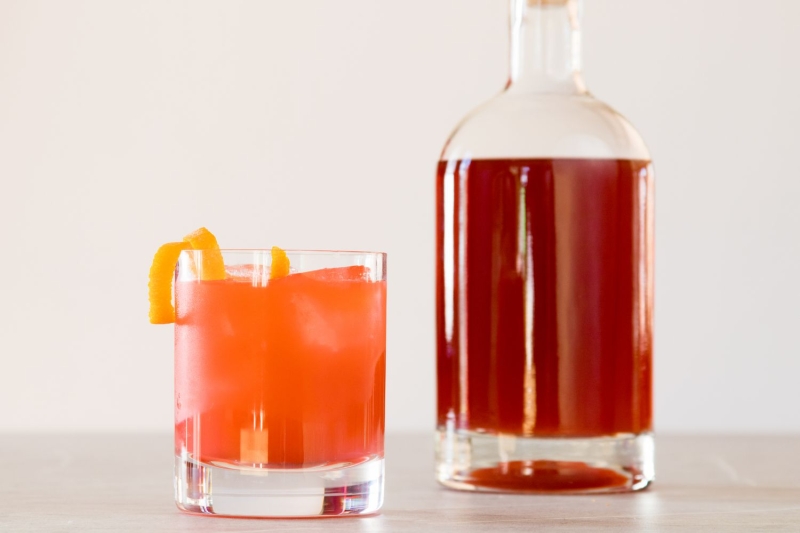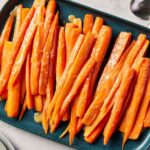Prep: 20 mins
Cook: 5 mins
Infuse: 168 hrs
Total: 168 hrs 25 mins
Servings: 25 servings
Yield: 30 ounces
Campari is a popular Italian apéritif that is made with a secret blend of over 30 flavoring ingredients and, likely, a neutral grain alcohol. While it’s difficult to speculate about the exact ingredients that make up this proprietary formula, it is possible to replicate its unique taste at home with just a handful of botanicals.
To make homemade Campari, you’ll start by steeping citrus peels and several dried roots and herbs in 100-proof vodka. Orange is the dominant flavor, and adding dried lemon peels produces a nice citrus base. Campari is well-known for its bitter taste, and gentian root is the primary bittering ingredient. It’s backed up by wormwood (famously used in absinthe), along with angelica root and wild cherry bark to round out the flavor. After about two weeks (though you can go up to three weeks for a stronger flavor), the infusion is ready to be blended with a light simple syrup and water to reach a bottling strength similar to Campari. The recipe makes about 30 ounces (887 milliliters) of a Campari-like liqueur, which is a little more than a standard bottle, so you have some excess for tasting as you blend.
Campari's signature red color was originally carmine dye, which is derived from a beetle-like insect known as cochineal. Today, the company uses artificial colorings. At home, food coloring is a good alternative that gives the spirit a red color, though this is primarily for aesthetics and not required.
Campari is priced alongside other top-shelf spirits, and making it at home might be cheaper in the long run. The botanicals are typically sold in bulk, so they’ll last for several batches. If you experiment enough to perfect your personal recipe (or play with homemade mixers like tonic water and chocolate bitters that use some of the same ingredients), you can easily offset the initial cost. Have fun adapting it to your taste, and enjoy this homemade Campari on its own over ice or with soda to mellow the flavor. It’s also excellent when mixed into a Negroni or any other Campari cocktail.
Ingredients
-
473 milliliters (2 cups) 100-proof vodka
-
20 grams (1/4 cup) gentian root
-
15 grams (3/4 cup) dried orange peel
-
10 grams (1/4 cup) dried lemon peel
-
10 grams (2 tablespoons) angelica root
-
10 grams (2 tablespoons) wild cherry bark
-
5 grams (2 tablespoons) dried wormwood
-
340 grams (1 1/2 cups) distilled or filtered water, divided
-
99 grams (1/2 cup) white granulated sugar
-
1/2 teaspoon citric acid, optional
-
20 drops red food coloring, optional
Steps to Make It
-
Gather the ingredients.
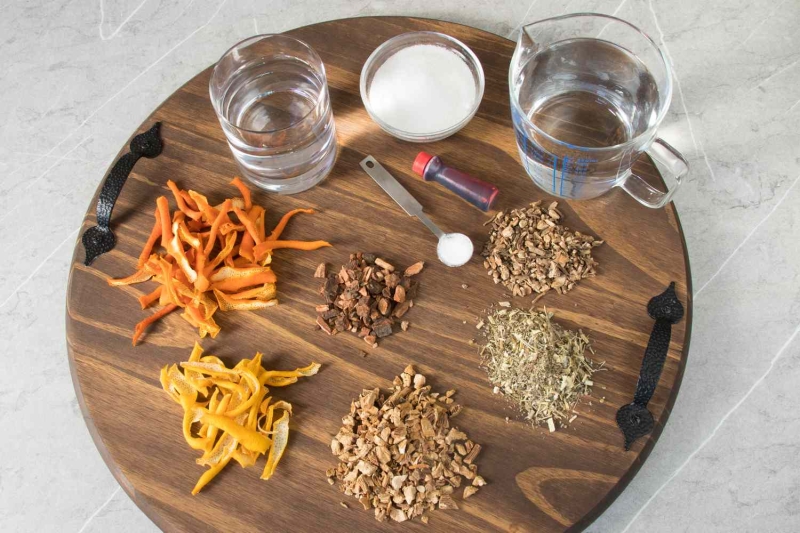
-
In a 1-quart (or larger) jar, add the vodka, gentian root, orange and lemon peels, angelica root, while cherry bark, and wormwood. Seal the jar and shake well. Let infuse for 10 to 14 days, storing the jar in a cool, dark place, and shaking daily.
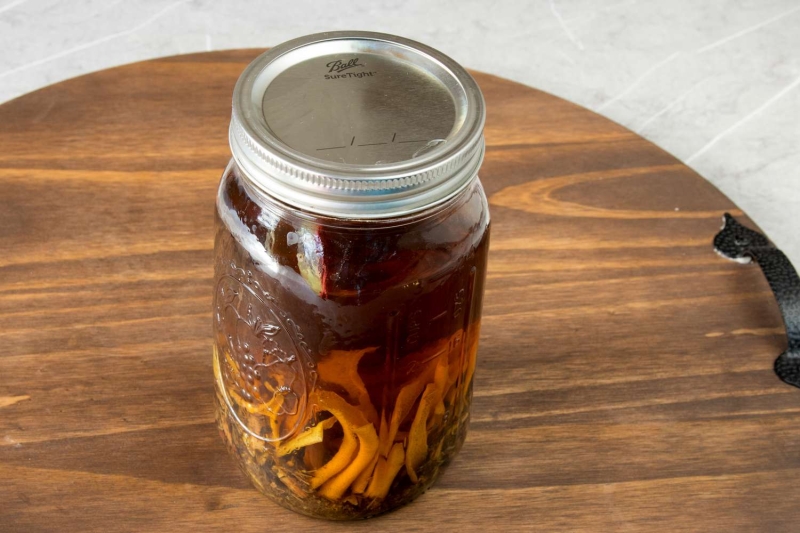
-
When ready to make the liqueur, bring 227 grams (1 cup) of water to a boil in a small pot. Stir in the sugar until completely dissolved, reduce heat, and simmer for about 5 minutes. Remove from the heat and let cool completely. This should yield about 1 1/4 cups of simple syrup.
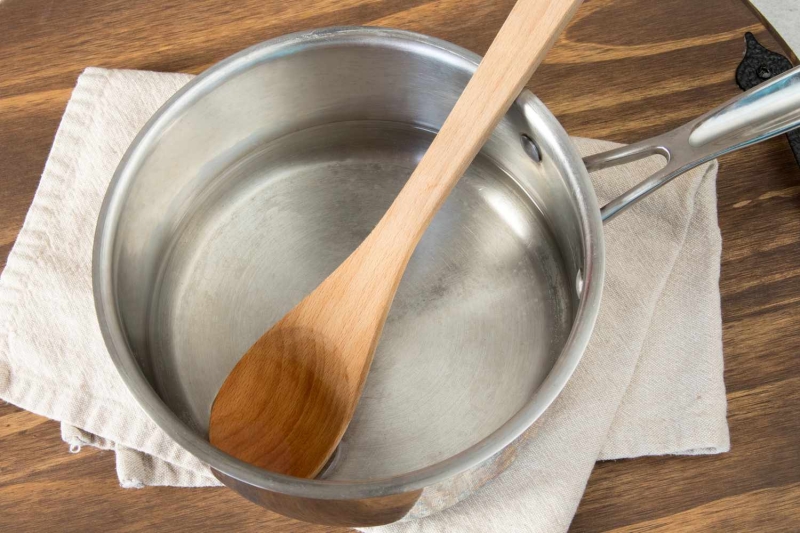
-
Once the botanical infusion is done, strain it in a cheesecloth-lined fine-mesh strainer to remove the botanicals. Strain one or two more times (rinsing the cheesecloth after each session) if you'd like a clearer spirit.
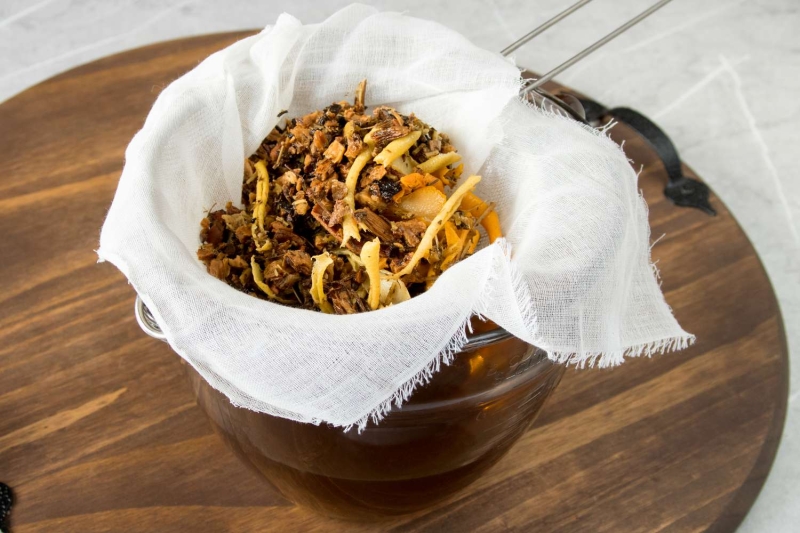
-
Combine the infused liquor with the simple syrup. Stir in the citric acid (if using) and the remaining 1/2 cup of water (use more or less to taste). Add about 20 drops of red food coloring to reach the desired red coloring.
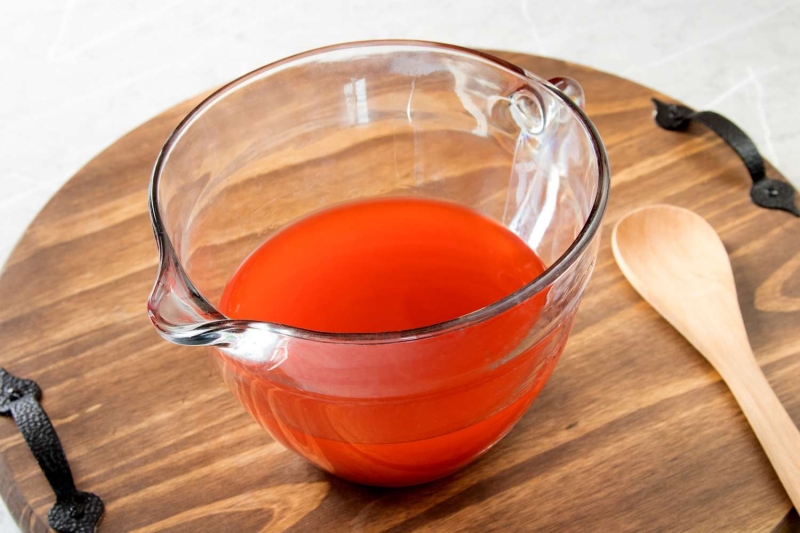
-
Bottle the homemade Campari in a 750-milliliter bottle or 1-quart jar under a tight seal. Store at room temperature in a cool, dark place, just like any other liquor.
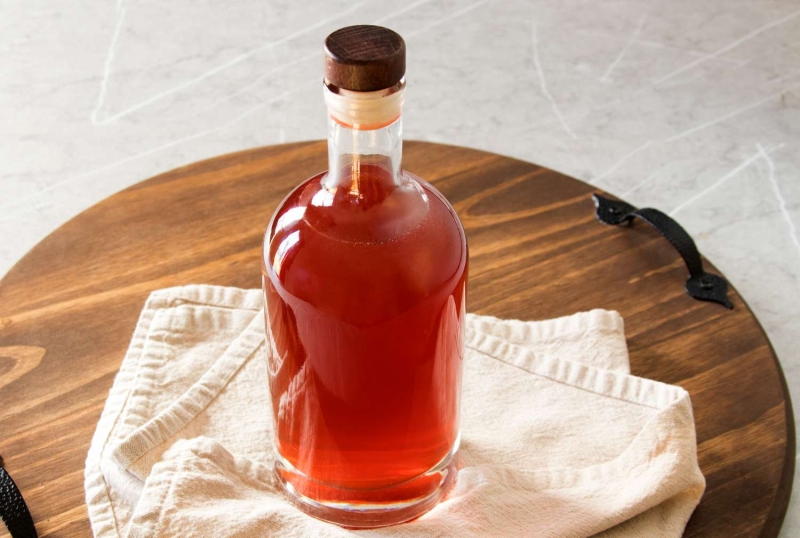
Recipe Tips
- For consistent results, weigh the ingredients with metric units on a kitchen scale.
- Using fresh—rather than the suggested dried—citrus peels may decrease the shelf life of your homemade Campari. To quickly dry citrus peels, cut the peels from fresh oranges and lemons using a vegetable peeler (you’ll need about two of each fruit), then dry in a 200 F oven on a parchment-lined baking sheet for 25 to 30 minutes.
- The botanicals are readily available online and at some herbal shops. Avoid using ground options; the recipe is designed for the cut and sifted versions, which are bulky and that makes them easier to measure and strain.
- This recipe uses a light (not rich) simple syrup which cuts the alcohol content and gently sweetens the bitter spirit. It’s mixed at three parts infused spirit to two parts syrup; keep that ratio in mind when increasing a batch.
- Citric acid (or sour salt) is a powdered preservative that’s commonly used to boost the flavor of commercial sodas, syrups, and liqueurs. It can be found at stores that sell home canning supplies and natural foods, as well as online retailers.
- Once you add the syrup and water to the infused liquor, it’s likely that this homemade spirit will be cloudier than commercial Campari. It will affect the look of cocktails but not the taste.
Recipe Variations
- Rather than using more syrup, you can cut the spirit with one cup or more of water to soften the flavor and reduce the alcohol content.
- You can use 151-proof neutral grain alcohol, though the finished infusion needs to be cut with more water because a higher alcohol content intensifies the bitter flavor. Follow the recipe, then add one cup of water to reach 28 percent ABV, and adjust to taste. This produces about 42 ounces (slightly more than one liter).
- If you'd like to experiment more with botanicals, steep each separately in equal parts of alcohol then blend the individual infused spirits to taste. This helps you understand the individual flavor and properties of each botanical without committing them to the full batch. For instance, cut and sifted rhubarb root is commonly found in DIY Campari recipes. While a nice addition, it creates a yellow alcohol that will easily stain any porous surfaces you're working with, including wood and cloth. The flavor is not too noticeable to be missed in the final blend, and the mess can be more of a hassle than it's worth.
How to Use Homemade Campari
Your homemade version can be used just like regular Campari. It’s a bitter liqueur, so might take some getting used to unless you’re a seasoned Campari drinker. When you want to relax the flavor, serve the DIY Campari on the rocks or make a Campari and soda. It works very well in classic Campari cocktails like the Americano, Boulevardier, and Negroni. The apéritif is also fun in myriad modern drink recipes, such as the cold in the shadows where it’s paired with raspberry liqueur and IPA beer.
How Strong Is Homemade Campari
The strength of your homemade Campari will depend on how much syrup and water you add. When made according to the recipe, it will be around 30 percent ABV (60 proof). Commercial Campari is bottled between 20.5 percent and 28 percent (depending on the market), so this DIY version offers a bit of room to adjust it to taste.
| Nutrition Facts | |
|---|---|
| Servings: 25 | |
| Amount per serving | |
| Calories | 62 |
| % Daily Value* | |
| Total Fat 0g | 0% |
| Saturated Fat 0g | 0% |
| Cholesterol 0mg | 0% |
| Sodium 2mg | 0% |
| Total Carbohydrate 5g | 2% |
| Dietary Fiber 1g | 3% |
| Total Sugars 4g | |
| Protein 0g | |
| Vitamin C 2mg | 9% |
| Calcium 34mg | 3% |
| Iron 1mg | 6% |
| Potassium 21mg | 0% |
| *The % Daily Value (DV) tells you how much a nutrient in a food serving contributes to a daily diet. 2,000 calories a day is used for general nutrition advice. | |
